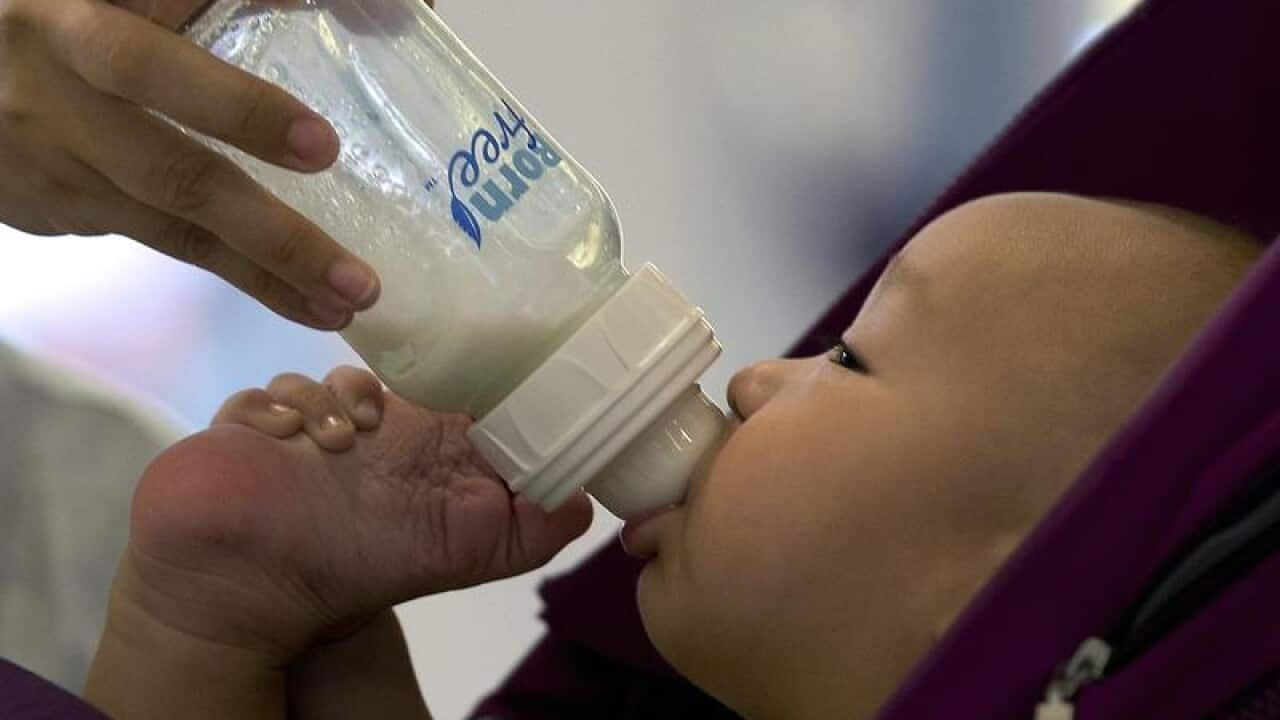Australia's food regulator has downplayed calls for it to recall some brands of infant formula after they were found to contain potentially toxic nanoparticles.
Environment group Friends of the Earth wants three brands of formula taken off shop shelves after tests showed they contained microscopic nano-hydroxyapatite particles, despite them being banned from use.
But Food Standards Australia New Zealand (FSANZ) says there's no new evidence to show that the formulas pose a risk to the health of babies and young children.
"Carers of infants should not be alarmed by this report or concerned about the safety of these products," the regulator said in a statement on Sunday.
Tests commissioned by Friends of the Earth found three of seven samples of infant formula on sale in Australia contained nano-hydroxyapatite particles, which have been found to damage cells in rat's livers and kidneys.
The group says FSANZ should immediately recall the affected brands - Nestle NAN H.A. Gold 1, Nature's Way Kids Smart 1 and Heinz Nurture Original 1 - and test all infant formulas on sale in Australia to check whether others contain hydroxyapatite or other banned substances.
FoE said the Nestle NAN H.A. Gold 1 and Nature's Way Kids Smart 1 samples contained a needle-like form of hydroxyapatite, which the European Commission's Scientific Committee on Consumer Safety has said is potentially toxic and should not be used in oral products such as toothpaste and mouthwash.
"Babies are particularly vulnerable to food safety risks since their immune systems are still developing," FoE said.
"Often infant formula is the only food an infant receives. FSANZ needs to immediately recall these products."
Nano-hydroxyapatite, which is made from calcium and phosphorous salts, is often used in oral care products like toothpaste, tooth whitener and mouthwash to help teeth remineralisation.
Questions about the safety of the needle-like form of nano-hydroxyapatite in infant formula emerged in 2016 after scientists at Arizona State University found the mineral substance in six popular brands on sale in the United States.
Some scientists believe more tests are needed to be carried out on the needle-like particles amid fears they can penetrate cell walls in the body and cause damage.
The FSANZ said hydroxyapatite is soluble in acidic environments including the stomach, so small amounts in food are likely to dissolve.
It also noted that foods are often made up of nanoscale sugars, amino acids and proteins which have been consumed by people without any evidence of adverse health effects.
"The presence of something, whether on the nanoscale or not, in a food that does not have a permission in the (Food Standards) Code does not mean a food is unsafe," the regulator said.

